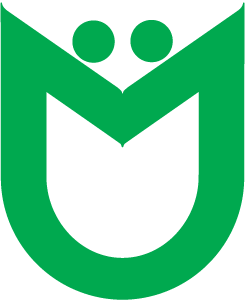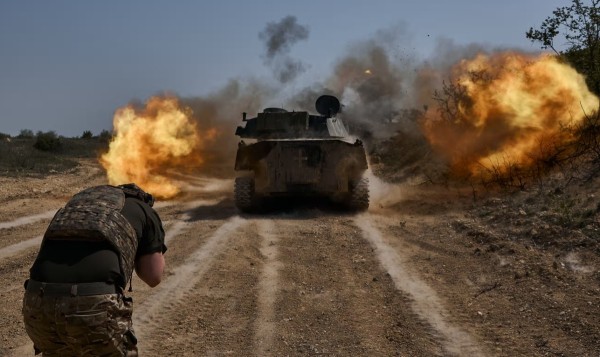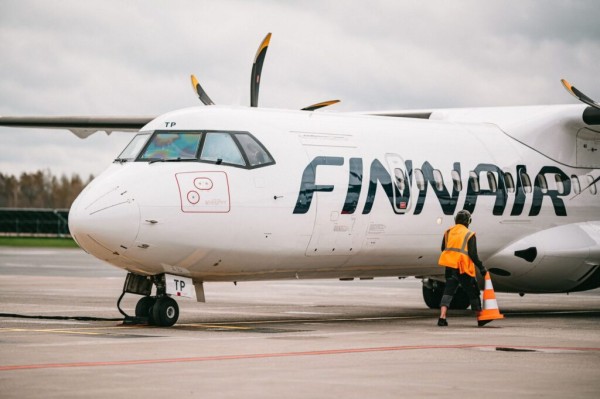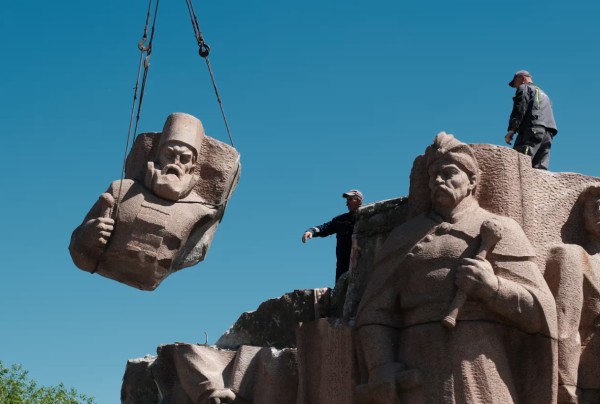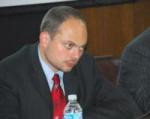
It is not difficult to win an election when your opponents are not on the ballot.
Not once during his 18 years in power has Vladimir Putin faced off against a genuine challenger. His original competitor in the race for the Kremlin, Yevgeny Primakov — like him, a former prime minister and official in the Soviet KGB, though much more high-ranking — was neutralized by a sustained television campaign filled with sleaze and disinformation. It included claims that Primakov was a NATO pawn and plotter of attempts to assassinate a head of state; at one point, when Primakov underwent a hip replacement operation, his enemies broadcast graphic images of surgery, with doctors drilling and hammering though a bloody human leg. No methods were shunned.
https://www.washingtonpost.com...
By the time Channel One host Sergei Dorenko (dubbed “the TV killer”) was done, Primakov’s poll standing had collapsed from 32 percent to 8 percent, and, in February 2000, the former prime minister withdrew from the presidential race, angrily noting “how far our society is … from genuine democracy.”
With time, methods became less sophisticated. From 2008, opponents of the regime were simply barred from the ballot, leaving Putin (or his technical stand-in, Dmitry Medvedev) to “defeat” perennial candidates and handpicked shadow-boxers. It must be convenient to be able to select your own rivals. In 2008, former prime minister Mikhail Kasyanov was disqualified from the election over supposed irregularities in the signatures in support of his nomination.
Another candidate, well-known Soviet-era dissident Vladimir Bukovsky, wasn’t even allowed to collect signatures after his candidacy was blocked by officials of the Central Election Commission who complained that he did not submit documents proving that he was a writer. Russian journalists had a field day quoting from Mikhail Bulgakov’s novel “The Master and Margarita” — “If you wanted to make sure that Dostoevsky was a writer, would you really ask him for his membership card?” — but officials were unimpressed. In 2012, at the height of the mass protests that began after a rigged parliamentary election, one opposition leader, the veteran liberal politician Grigory Yavlinsky, was disqualified from the presidential race, also on the pretext of signature irregularities.
Two prominent opposition leaders were planning to run against Vladimir Putin in this year’s presidential election. One was Boris Nemtsov, a former deputy prime minister and regional governor, four-term member of parliament, and the only authentic opposition politician who won an election in Putin’s Russia, becoming a regional legislator in 2013. He was planning a return to the Russian parliament in 2016 and considering a challenge to Putin in 2018. The plans came to an end when Nemtsov was gunned down in the center of Moscow on the evening of Feb. 27, 2015. That, of course, disqualified him from the ballot.
The second challenger was Alexei Navalny, the anti-corruption campaigner who finished a strong second in Moscow’s 2013 mayoral race and who spent the past year campaigning all over the country for a place on the presidential ballot. He opened campaign headquarters in dozens of regions, attracting hundreds of volunteers and thousands of people at campaign rallies. On Jan. 6, the Russian Supreme Court formally barred Navalny from the race, confirming an earlier decision by the Central Election Commission. The disqualification was based on Navalny’s conviction on fraud charges in 2013, a verdict that was clearly aimed at disqualifying him from participating in the elections. The European Court of Human Rights later called his conviction “arbitrary” and “prejudicial” — after which his sentence was formally overturned, and then reissued, word for word, in a new trial. At his last press conference, Putin did not hide the political motivation behind the barring of Navalny, comparing him with former Georgian president and “Rose Revolution” leader Mikheil Saakashvili, whom he accused of fomenting chaos in his home country.
Western commentators who buy into the Kremlin line about Putin’s “popularity” among Russian citizens would do well to remember that this assertion has never been tested in a free and fair election against credible opponents. As chess master and Putin critic Garry Kasparov once queried, if “there’s one restaurant in town and it serves only one dish … is that dish ‘popular’”? Leaving aside the other methods of controlling elections practiced by Putin’s regime — its monopoly on access to television, administrative pressure on state-dependent voters, and outright fraud — the fact that opponents are not allowed on the ballot should in itself be enough to stop anyone from viewing elections in today’s Russia as substantially different from one-party “elections” in the Soviet Union.
In the absence of objective official indicators, one is left to look for empirical evidence of popular enthusiasm for Putin’s rule. One such glimpse was offered on New Year’s Eve, when activists in the Western Siberian city of Tyumen held a public meeting in support of Putin’s nomination for president — announced in the local media, but not organized in the usual way, with compulsory attendance by state and municipal employees. In a city of 740,000, this pro-Putin gathering was voluntarily attended by nine people. Stories such as this seem to confirm the simple (and self-evident) truth: that a leader with real popular support would not be afraid of real competition at the ballot box.
Vladimir Kara-Murza is vice chairman of the Open Russia movement and chairman of the Boris Nemtsov Foundation for Freedom.












